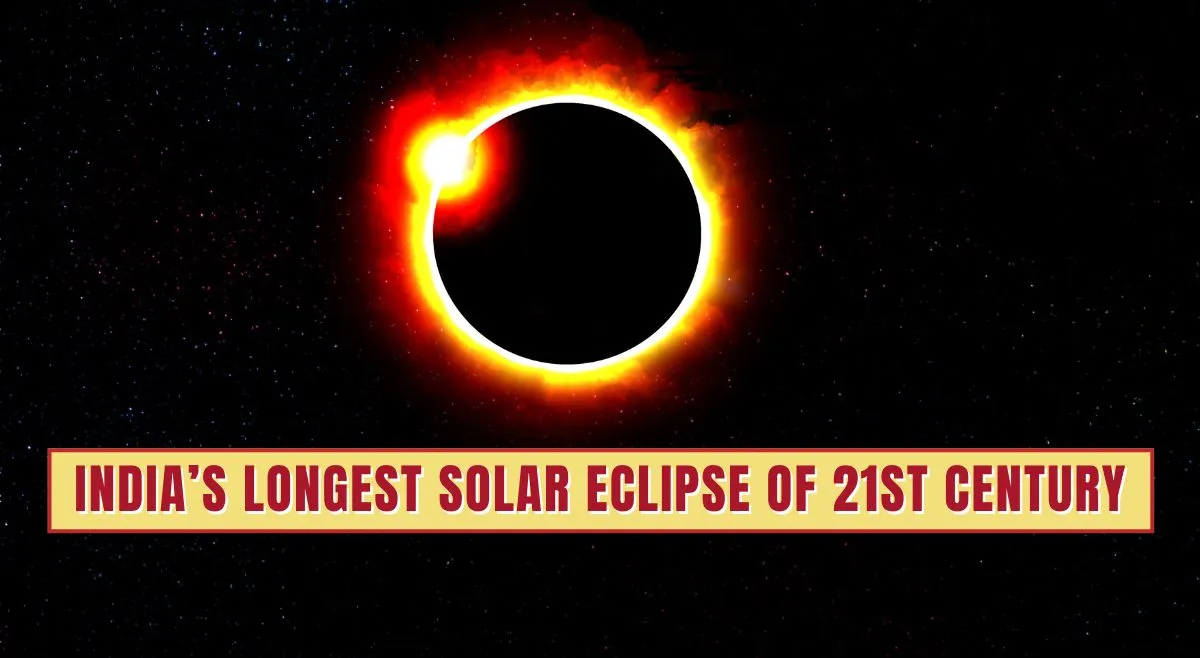- By Ridam Sharma
- Sat, 20 Sep 2025 01:39 PM (IST)
- Source:JND
India's Longest Solar Eclipse: Solar eclipse has always been a fascinating phenomenon. Indian’s across the globe, especially Hindu believers, also connect it with being a religious occurrence. A solar eclipse happens when the Sun, Moon, and Earth align, which causes the Moon to pass between the Sun and Earth. This all results in a shadow on Earth, which blocks the Sun's light. The beautiful site occurs two to five times a year; however, five times is an exception. A solar eclipse can last for many hours, but have you ever wondered which was the longest solar eclipse that happened in India in the 21st century? Let’s find out
Longest Solar Eclipse Of The 21st Century In India:
India witnessed the longest total solar eclipse of the 21st century on July 22, 2009. This rare celestial phenomenon was seen over a vast tract of the country and was a memorable event for astronomers and the common man alike in terms of history. The duration during which the Moon cuts off the Sun lasted as long as 6 minutes and 39 seconds. The eclipse started early in the morning, moving westward across several cities like Surat, Indore, Bhopal, Varanasi, and Patna. In these parts of the world, the sky turned dark abruptly as the Moon eclipsed the Sun, making it a sight to watch for sky lovers and experts.
Also Read: Surya Grahan 2025 Time: Watch Solar Eclipse In Mumbai On September 21; Check Full Details
This total eclipse was extended throughout India, and millions of citizens witnessed this unusual phenomenon. Scientists also camped during this eclipse to analyse the whole occurrence, from temperature to even the behaviour of animals during this unusual darkness. This event was a lot more than just a scientific event; it also held cultural and spiritual significance for many communities, and it became a key moment for India's astronomical history. In cities like Varanasi, known for their spiritual heritage, large crowds gathered by riverbanks to observe age-old rituals during the eclipse.
